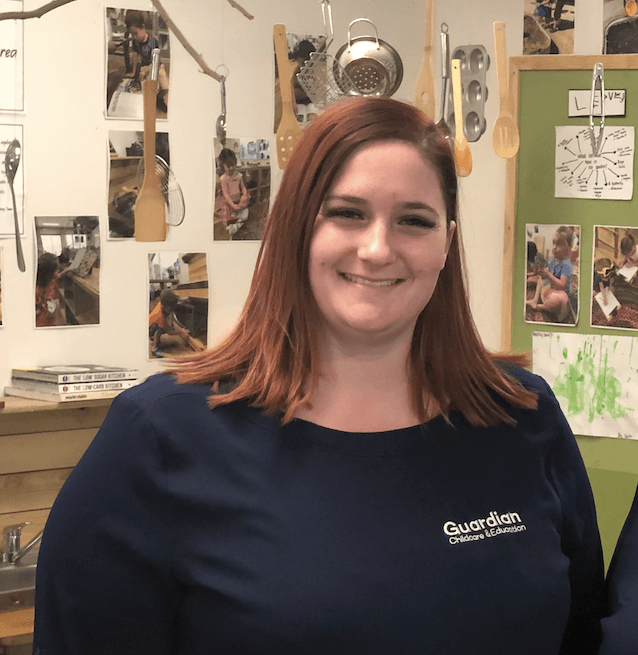COVID-19
Leadership
The role of mentoring in leading a new team through COVID-19 – one manager’s story

Freya Lucas
Jul 30, 2020
Save
Moving into a new leadership role can be a challenging time in the life of a manager. Moving to a new role while also starting a new life interstate even more so. Imagine moving to a new leadership role, in a new state, and starting just a week and a half before Australia implemented serious “lock down” measures to combat COVID-19, which were swiftly followed by fundamental changes to the way in which the early childhood education and care (ECEC) sector is funded…
This was the situation faced by Guardian Childcare & Education Clayfield Centre Manager Peta Kiellor earlier this year. We caught up with Peta to learn more about how she handled the transition into her new role, and about the importance of mentoring and professional support in growing ECEC leaders.Peta began working in the sector in 2012, following a childhood dream of being a teacher, which was temporarily put on hold while Peta worked in retail after finishing high school.
“When I realised how unhappy I was, I decided to try early childhood and did a traineeship to see if this is what I really wanted to do. I fell in love and have stayed in the sector ever since,” she said.
Mentoring
It was seeing the progression of some of the educators in her team, and watching them move into roles that they had always wanted to pursue, which drove Peta to grow as a professional in order to support the growth of others.
For Peta, mentoring is about supporting someone through their challenges rather than identifying their shortcomings.
“Reflecting with a person and getting them to self-identify a skills gap which you can help them with is what it is all about - as well as sharing your skills,” she added.
Her approach to mentoring aligns with what she sees as a strength within Guardian.
The Guardian approach, she said, “is really about self-reflection and identifying areas in which you want to grow”.
The partnership she had with her leaders and mentors, Peta continued, was one where “they would always help me find a way to further improve myself, whether it was through hands on professional learning, or face to face professional development”.
Having honest conversations with her own mentors and leaders was a big part of Peta’s decision making in terms of moving interstate.
“Guardian has been incredibly supportive of me taking this next step in my personal life with a move to Queensland, and they respected my choice to leave - even though I was at a centre that they really wanted me to stay at,” she said.
“Everyone I spoke to from the HR team to the operations team in both states were nothing but supportive in helping me to understand what the processes would be in relocating. Once I expressed interest in moving to a new state I had the general manager as well as the operations team call me and introduce themselves so that I could build relationships before I even moved up there.”
Everyone spoke to me in an honest and respectful way, and discussed what challenges they were currently facing as well as the successes of the centres I was looking to move into. This helped me make an informed choice and that was really important to me.
COVID-19
We asked Peta about the role the COVID-19 pandemic has played in her transition to being a new leader for the service, and if the enforced priorities of the pandemic had changed the way in which she dealt with getting to know children, families and educators.
“I started my new role a week and a half before the state and country went into lockdown which was challenging on both a personal and professional level,” she said.
“The changes I had initially identified became less important, and instead the first probably twelve weeks at the centre were all about building and maintaining relationships with staff – giving them support, and ensuring everyone was being comforted and reassured.”
COVID-19, she continued, meant that she “got to know my team on a really personal level”.
“We were all scared and unsure about the future and this opened up opportunities for raw and honest conversations. I learned more about my team because of this and it helped me gain a different perspective – one I probably would never have gained were it not for COVID.”
As a result of the period of intense change and relationship building, the goals Peta had initially set for the centre changed, something she believes will result in better outcomes for the team and centre long term.
As challenging as the pandemic was, she said, it was a blessing in disguise giving her the perspective and opportunity to see the team in a crisis really early on.
“I was able to see how they supported each other through challenges and how they built each other up – it helped me better plan for how we would mitigate change because I’d developed a better picture of how they would respond,” she added.
To learn more about Guardian Childcare & Education please see here.
Don’t miss a thing
Related Articles



















